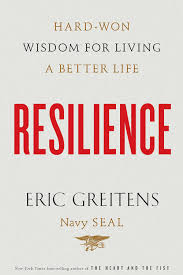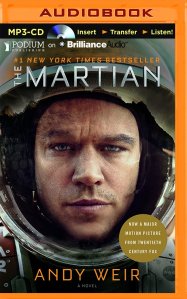Resilience.
The word is often misunderstood. Most people think the word means “bouncing back.” We often refer to people, especially kids who get knocked down as “resilient” kids. While there is some truth in that comparison, I have learned that resilience as a life virtue is something much greater. And important.

Glencoe Valley, Scotland. Photo by Ray Devlin
This post is a reminder of why I started writing–thinking of my children first, and then others that I love and want to encourage. In life, we are forged by our experiences and resilience is the tool. It is tempting to retreat when hard times come our way. As I reflect on my life, I’ve been guilty of doing so and regret it every time. Self-doubt, insecurity, and depression can haunt us. They are the levers of defeat and none of us can escape them fully. Enter resilience. My reminder of resilience is the picture above of Glencoe Valley in Scotland. It hangs in my office. Glencoe was carved out of some of the harshest weather of the Scottish Highlands. I’ve traveled through Glencoe in clear skies, shadowy mist, and even blanketed snow. There are no perfect weather guarantees at Glencoe and that is why it is so beautiful and mystical. It haunts me because it is resilient.
I recently listened to a podcast interview with Eric Greitens who wrote a book about the virtue and properly titled it, Resilience. This is perhaps one of the most important books to our development as human begins. I love the writing style Greitens utilizes as a friend sharing wisdom with another friend. After all, we as frail people needs good friends and mentors to encourage us along the way.
For a long time, I looked at Eric Greitens as someone who is too good to be true. Athlete. Duke graduate. Rhodes scholar. Humanitarian. Navy SEAL. Founder of a non-profit supporting veterans. Governor of the state of Missouri. All accomplished by a 43-year-old. His public appearance is of a man who has done all of the right things.
After reading, it is evident that he as suffered as most people do and has developed a sense of humility about it. Resilience has been an important book to help me dive back into the classics by Homer and Aristotle, and is helping shape the way I think about the world and my life challenges. I am grateful for this book and would put it at the top of a must read for anyone wanting to understand their suffering or how to help someone who is going through trials.

There are many challenging quotes from the book that I pulled. I hope you will be encouraged to fight through with resilience. You are not alone.
Why Resilience
“We all need resilience to live a fulfilling life. With resilience, you’ll be more prepared to take on challenges, to develop your talents, skills, and abilities so that you can live with more purpose and more joy. I hope something here can help you to become stronger.”
“What happens to us becomes part of us. Resilient people do not bounce back from hard experiences; they find healthy ways to integrate them into their lives. In time, people find that great calamity met with great spirit can create great strength.”
Leadership
“Leaders lead from the front. Never ask someone to endure more than you are willing to endure yourself.”
“Beware the person who seeks to lead and has not suffered, who claims responsibility on the grounds of a spotless record.”
“We are almost always better led by those who have pushed themselves up to and past their limits than by those who don’t know where their limits are.”
The Fight
“And it’s often in those battles that we are most alive: it’s on the front lines of our lives that we earn wisdom, create joy, forge friendships, discover happiness, find love, and do purposeful work. If you want to win any meaningful kind of victory, you’ll have to fight for it.”
“When we have meaningful, fulfilling, purposeful work, it radiates through our lives.”
“You’ll understand your own life better, and the lives of others better, if you stop looking for critical decisions and turning points. Your life builds not by dramatic acts, but by accumulation.”
“What usually matters in your life is not the magical moment, but the quality of your daily practice.”
“If we are intentional about what we repeatedly do, we can practice who we want to become.”
“Resilient people do not bounce back from hard experiences; they find healthy ways to integrate them into their lives.”
Responsibility
“At the root of resilience is the willingness to take responsibility for results.”
“You are not responsible for everything that happens to you. You are responsible for how you react to everything that happens to you.”
“People who think you are weak will offer you an excuse. People who respect you will offer you a challenge.”
“Any nation that draws too great a distinction between its scholars and its warriors will have its thinking done by cowards and its fighting done by fools.”
Facing critics
“Know this: anyone who does anything worthy, anything noble, anything meaningful, will have critics.”
Understanding pain and hardship
“Resilience is the virtue that enables people to move through hardship and become better.”
“To work through pain is not to make it disappear, but to make it mean something different for us—to turn it into wisdom.”
“To move through pain to wisdom, through fear to courage, through suffering to strength, requires resilience.”
“An unwillingness to endure the hardship of a depressed time keeps us from the possibility of capturing the wisdom and strength and joy that can exist on the other side. There is a season to be sad. Painful things hurt. Allow yourself to be hurt.”
Humility
“I begin with humility, I act with humility, I end with humility. Humility leads to clarity. Humility leads to an open mind and a forgiving heart. With an open mind and a forgiving heart, I see every person as superior to me in some way; with every person as my teacher, I grow in wisdom. As I grow in wisdom, humility becomes ever more my guide. I begin with humility, I act with humility, I end with humility.”
“If you start with humility, you see every person as your teacher.”











 There are many books I would recommend to read before Lewis’
There are many books I would recommend to read before Lewis’